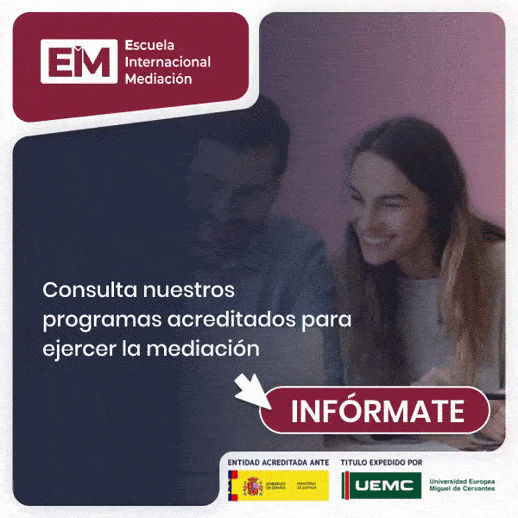Nature and origins.
Restorative justice appears after the modification of the Penal Code, where the victim is recognized the right to participate in the restitution of the damage suffered and the direct and express recognition of the guilty person of his responsibility for the crime committed and his active will to repair the damage. caused.
To do this, the guilty party, the crime and the punishment must meet certain requirements.
During this entire process, the criminal judicial process is suspended, it is referred to a mediation process and the agreement reached is subsequently communicated to the judge so that it has the effect of sentencing.
Definition.
We are facing a type of Mediation: Criminal Mediation, which covers a large number of crimes that can be resolved in a less traumatic way for all parties, and that manages to direct the resolution of personal and social conflicts originating in acts and criminal behavior towards peaceful coexistence.
At all times, the voluntariness of the guilty party in wanting to participate in the mediation process is maintained, and the victim's willingness to listen, forgive and reach an agreement is maintained.
Sources.
- At the national level:
Organic Law 10/1995, of November 23, of the Penal Code, modified by LO 1/2015 of March 30.
Article 80.3 Exceptionally, even if conditions 1 and 2 of the previous section are not met, and provided that they are not habitual prisoners, the suspension of prison sentences that individually do not exceed two years may be agreed upon when personal circumstances arise. of the inmate, the nature of the fact, his conduct and, in particular, the effort to repair the damage caused, as advised.
In these cases, the suspension will always be conditioned on the effective repair of the damage or compensation for the harm caused in accordance with their physical and economic possibilities, or on compliance with the agreement referred to in measure 1 of article 84.
Article. 84 The judge or court may also condition the suspension of the execution of the sentence to the fulfillment of one or some of the following benefits or measures:
1. Compliance with the agreement reached by the parties under mediation.
Law 4/2015, of April 27, on the Statute of the Victim of Crime.
Article 15. Restorative justice services.
- Victims may access restorative justice services, in the terms determined by regulation, with the purpose of obtaining adequate material and moral reparation for the damages derived from the crime, when the following requirements are met:
- d) the mediation procedure does not entail a risk to the safety of the victim, nor is there a danger that its development could cause new material or moral harm to the victim;
- The debates developed within the mediation procedure will be confidential and will not
- The debates developed within the mediation procedure will be confidential and cannot be disseminated without the consent of both parties. Mediators and other professionals who participate in the mediation procedure will be subject to professional secrecy in relation to the facts and statements of which they have become aware in the exercise of their function.
- The victim and the offender may revoke their consent to participate in the mediation procedure at any time.
- At European level, the sources are:
Framework Decision of the Council of the European Union of March 15 (2001/220/JHA),
Article 10. Criminal mediation within the framework of criminal proceedings.
Directive 2012/29/EU of the European Parliament and of the Council of October 25, 2012.
Article 12. Right to guarantees in the context of restorative justice services.
Bibliography
“Criminal mediation in Spain: towards restorative justice” 03/19/2018. Author Olatz Alberdi, partner and specialist in Civil Law at ABA Abogadas. Published in LEGALTODAY.
“Restorative justice. A path to explore?” 01/19/2019. Author Adelaida del Campo. Journalist. Expert in institutional and private communication. Published in CONFILEGAL
IDENTIFICATION DATA
Author: Rocío Bravo Gálvez. Social Graduate. TS PRL. Expert in Corporate Social Responsibility (CSR). Civil, commercial and family mediator.
Web page: www.consultoriasocialdakaphor.es
Contact: info@consultoriasocialdakaphor.es
RRSS: Twitter https://twitter.com/RocioBravoG
LinkedIn: https://www.linkedin.com/in/roc%C3%ADo-bravo-g%C3%A1lvez-24238570/
Facebook: https://www.facebook.com/profile.php?id=100009071964669
Publication date: 09/26/2019



